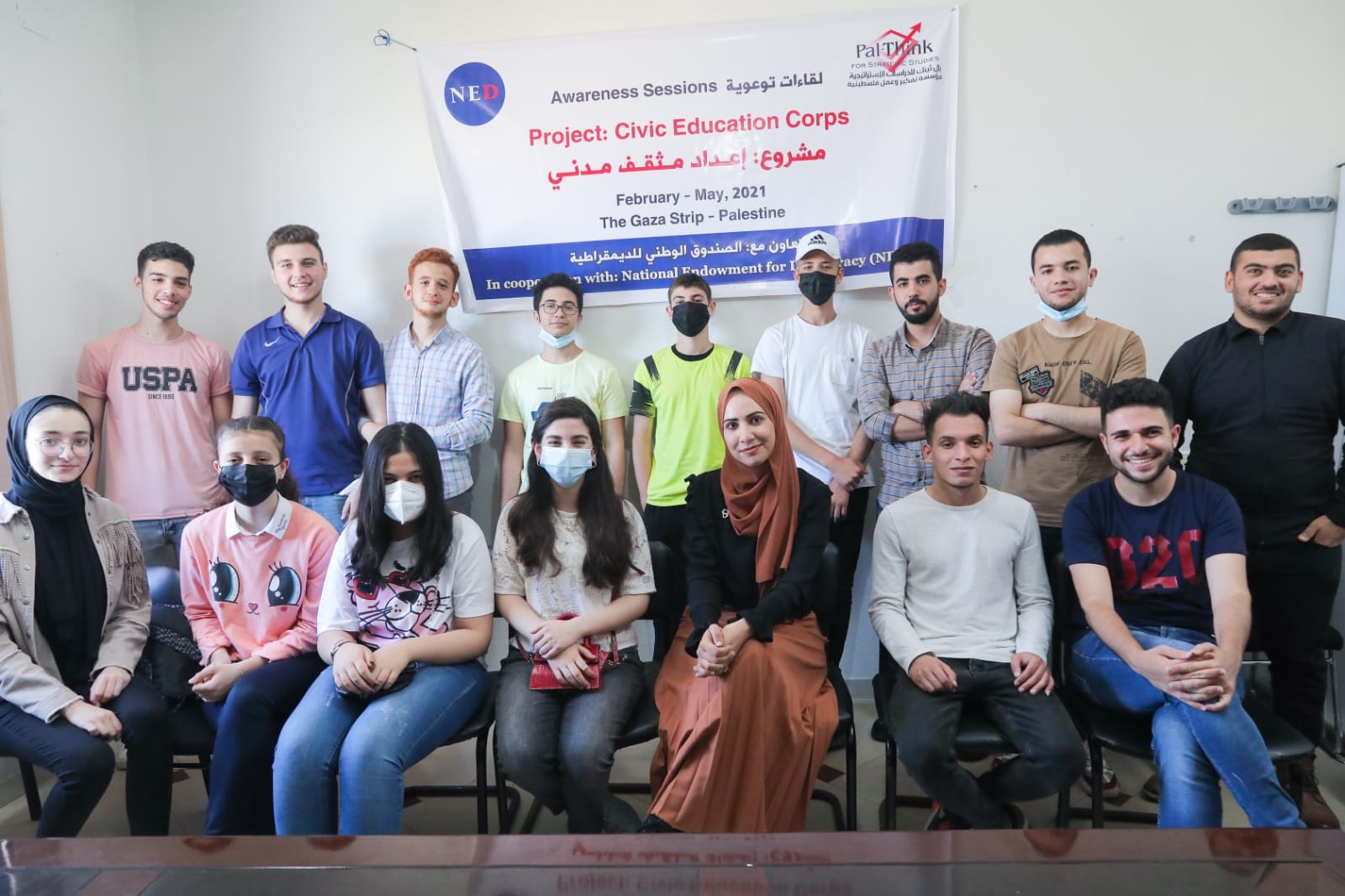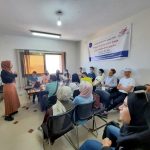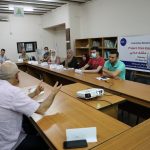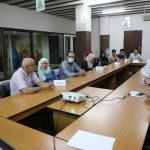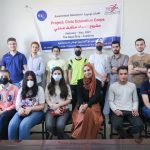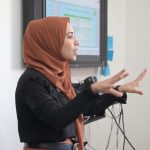In its efforts to enhance the capacities of university students in the issues of democracy, human rights and gender-based violence; The Civic Education Corps of Pal-Think continued to conduct outreach sessions for university students in the Gaza Strip, as part of the project “Civic Education Corps” implemented by Pal-Think for Strategic Studies with funding from the National Endowment for Democracy (NED).
In this context, a session on “Combating Corruption” was held at the Gaza Group Society for Culture and Development, attended by a number of university students.
Mr Omar Shaban, Pal-Think’s director, opened the session and welcomed the attendees. Besides, he stressed that this meeting is part of the ongoing efforts of Pal-Think in Palestinian society aimed at strengthening the capacities of young people and developing their skills in the issues of democracy and human rights.
He further emphasized that the civic education project targeting university students of both genders had trained 25 students on issues of democracy, human rights, gender-based violence, the rule of law, the principles of integrity, transparency, presentation and presentation skills, thus allowing trainees to coordinate with universities and civil society institutions to carry out what they had learned during the training programme in order to promote a peer education approach.
He noted that during the project implementation stages, they had seen a marked development in the skills and abilities of trainees in the delivery, persuasion and transmission of the information they had learned.
The Civic Education Corps member, Ms Hadil Ahl, moderated the session and talked about corruption, and its forms and causes. She further explained that financial corruption, administrative corruption and political corruption are forms and manifestations of corruption. Besides, she mentioned the causes of corruption, and reviewed the people of the concepts relevant to the fight against corruption; such as the concept of good governance, integrity, transparency, accountability and other related concepts.
Ahl stressed that one of the most important tools and means by which to combat corruption is awareness-raising, especially among young people, who are considered to be the most community-based group who are able to cope with and address the problems of society.
The second session, entitled “Gender-based Violence (Reality and Solutions in collaboration with the Palestinian Information Commission and the Youth-Biyalara Role, in the presence of a number of university students.
The meeting was moderated by Ms Saha Sokar, a member at the Civic Education Corps, who spoke about the concept of gender as the societal differences that define roles, rights, duties and obligations, and the different relationships and responsibilities between women and men that are generated by economic, social and cultural factors through historical development.
She also mentioned the concept of gender and its definition. She pointed out that gender roles meant the roles defined by society and linked to its expectations for individuals based on sex, defining male and female roles, and linking each role with a range of behaviours, values and practices around femininity and masculinity.
Sokar also spoke about gender-based violence in the Palestinian situation, mechanisms for dealing with cases of gender-based violence and the most important formal and informal bodies and institutions that can be used in the event of any form of violence, and reviewed legal texts dealing with cases of gender-based violence.
It is worth noting that the Civic Education Corps carried out 15 awareness sessions in collaboration with Palestinian universities and civil society institutions and attended by a number of university students. The Civic Education project trainees moderated these sessions after receiving extensive training on democracy, human rights, gender-based violence and the fight against corruption.
Five radio broadcasts were also carried out with the participation of members of the Corps and with a group of experts and intellectuals to discuss issues related to training topics.

